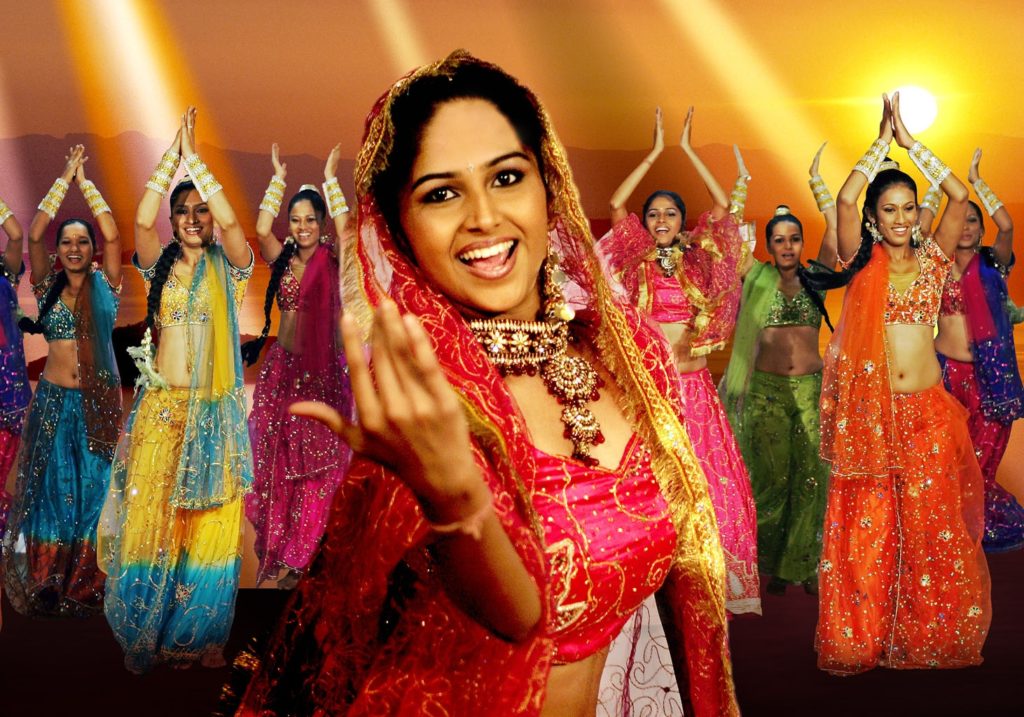
Nearly 90 percent of all violent crimes reported in India are crimes against women. This year’s United Nations Human Development Report (PDF) suggests that with the exception of Afghanistan, India is the worst-ranked nation in South Asia in terms of gender equality. The Hindi film industry is certainly not to blame for all the problems women face, but it does need to take responsibility for perpetuating chauvinistic values through its portrayal of women.
Just look at the endless number of film song videos depicting women as mere sexual objects. The 2012 hit song, “Lonely,” from Khiladi 786 starring Akshay Kumar is just one such example. This video for the song “Tenu Ki” (What Do You Care?) is another.
The Throwaway Girls Of Film Song Videos
The song “Tenu Ki” appears in Meri Shaadi Karao (Get Me Married), the debut film of famed singer Daler Mehndi’s son Gurdeep. As he sleeps the hero Gurdeep fantasizes about dancing with white women. Apart from a bit of bare chest, he is fully clothed. The background dancers, on the other hand, bear midriffs and long legs as they sashay in a variety of skimpy, revealing outfits. Gurdeep performs a few bhangra and hip-hop moves, while the women dance around him, shaking their hips and heaving their chests. Midway through the video, two female dancers pose on either side of him, casually bending down into position for some of Gurdeep’s booty-smacking.
The song’s lines of Hindi lyrics commingled with Punjabi go like this: “If an old man checks you out — what do you care? …Your man flirts with other girls at a club — what do you care? …Guys disrespect their mothers and daughters — what do you care?” The song is directed at women who speak up for themselves, and considers it nagging.
Once Gurdeep awakes, we learn he is, in fact, shy and anxious around ladies. Gurdeep’s Casanova image evaporates. Pakistani director Syed Noor aims for comedic irony, but could he have done this without the excessive sexism? The female dancers are solely portrayed as sexual objects that the hero has ownership over. As with most Hindi film videos, once the women serve their seductive purpose, we never hear from them again.
While the film failed at the box office, its song, which devalues a woman’s right to demand respect, is out there for the world to hear. It does little to help the women’s rights movement in India, which has a shameful history of viewing women as property with abolished and persisting traditions like sati, dowry demands and bride burnings.
Item Numbers = Big Ticket Sexism
A disturbing addition to this sexism is the growing popularity of “item numbers” in films — sexually provocative songs performed by female stars in sexy outfits to increase the marketability of a film. Such songs were performed by lesser-known actresses, but by the 1990s A-list actresses got on board as well.
Item number songs offer actresses a platform to showcase their dance abilities, sexual prowess and market value. Today, it is difficult to find an A-list actress who hasn’t performed in one. Kareena Kapoor, daughter of Babita and famed actor and director Randhir Kapoor, starred in this year’s, “Fevicol Se,” a hit song from the film, Dabangg 2. To sum up how Kapoor was depicted in the video — one of the lines she lip-syncs translates to, “I am a tandoori chicken/you can guzzle me down with some alcohol.”
Some argue that Hindi film actresses have become empowered by being open about their sexuality. More power to Kapoor if referring to herself as a piece of meat boosted her confidence. But the likelier explanation? Kapoor simply fell victim to another sexist aspect of the filmi lifecycle.
The Worth of a Married Actress
After a five-year relationship, Kapoor and actor Saif Ali Khan tied the knot last October. In a 2010 appearance on talk-show Koffee with Karan, Khan, with Kapoor by his side, made it clear why his girlfriend hesitated to get married. “[Marriage] is the birth of a future, and at other times it’s like a funeral,” he said. “Because being married, I mean, let’s face it… In our line of work, it’s not great. It’s pretty taboo for an actress in particular.” Actresses have been known to lose the spotlight after marriage.
As India continues to celebrate 100 years of Hindi cinema this summer, the industry should use this opportunity to reflect on how it depicts women on and off the big-screen. Let’s hope powerful actresses like Kapoor will still have a home in the industry regardless of marital status — a home where women are more than a piece of mouth-watering tandoori chicken.
Bhavna Patel is an arts and culture writer and a broadcast reporter originally from Montreal, Canada. She recently graduated from Columbia University’s Graduate School of Journalism program. Find her on Twitter @_BPatel.













As much as white guys fetishize Asian women, Asian guys also seem to fetishize white women. It’s pretty gross both ways. I cringe every time I see it. Do the guys who participate in this crap really not see how degrading it is, to both the group they’re fetishizing, and themselves??